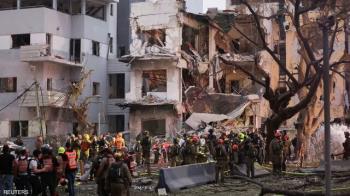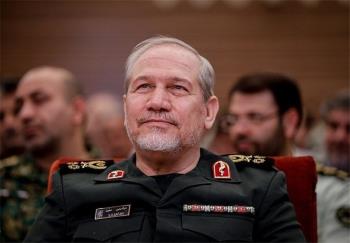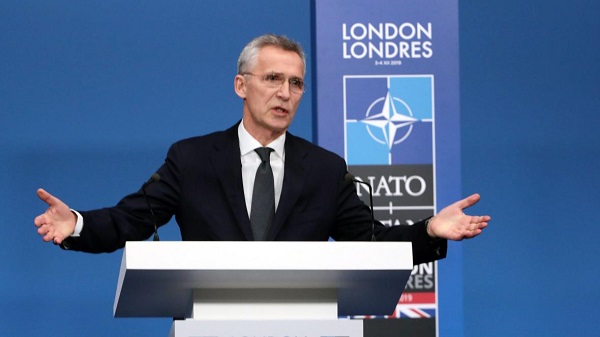Alwaght- Security has been the missing link of all of the political and social developments in Iraq in the years that followed 2003, the year the US invaded and occupied the West Asian country. Although in the beginning, the then US President George W. Bush in his message to the Iraqis promised democracy, stability, and freedom, what can all remember since then happening in Iraq is instability and insecurity. The US-led Westerners, however, usually insist that it is through cooperation with them that Iraq can obtain security and stability.
As part of this Western approach, recently the NATO deputy chief John Manza in a video conference with Qassem al-Aaraji, the Iraqi national security advisor, stated that the Western military organization plans to support, train, advise, capacitate, and boost the qualitative skills of the Iraqi armed forces next year. The comments follow ones by NATO chief Jens Stoltenberg who highlighted the bloc’s plans to strengthen its military presence in Iraq and continue “support to the local forces.”
In addition to the new NATO movements, the Minister of Peshmerga Affairs of the Iraqi Kurdistan region Shouresh Ismail on December 23 talked about plans by the so-called Western anti-ISIS coalition in Iraq to train the Kurdish military forces.
These two plans by the NATO and the Western coalition, both led by the US, promote a question: How much can their plans help bring security and political stability to Iraq?
Will Western military presence in Iraq bring security to the country?
Since the beginning of the occupation of Iraq by the US in 2003, the Washington-headed Western countries have insisted that their strategy is based on the use of their military forces to provide security for Iraq. In the preliminary years of occupation, American and British military forces were amassed in central and southern cities undertaking security and management of the situation while Iraq was in transition. But before the first official post-Saddam government formed by Prime Minister Nouri al-Maliki, Iraq not only did not taste security but also things worsened in the country.
Then came the 2009 security pact between Washington and Baghdad that brought about everything but stability and the citizens lived under threats of terrorism all the time.
But the turning point of the Western stances on Iraq’s security happened in 2014 when the ISIS terrorist group emerged in the country. Ignoring the security pact with Baghdad, Washington and NATO in the initial months of the ISIS rise passively followed the developments and negatively responded to the Iraqi government’s demand for help. Now, the NATO and the Washington coalition are talking about backing the Iraqi military forces while their several-year record of actions has resulted in unstable conditions.
NATO plan conflicts with the Iraqi parliament’s bill
The NATO plan to bolster its presence and the so-called cooperation with the Iraqi army is being stated while on January 5, Iraq’s lawmakers approved a bill obligating the government to expel the foreign military forces from the country. The bill came on the heels of the US assassination of Iran Quds Force’s Commander General Qassem Soleimani and Iraq Hashd al-Shabbi’s Deputy Commander Abu Mahdi al-Muhandis. Despite all skids put under the parliament’s move, what is definite is the Western intention to boost military presence is in stark contrast to the parliament’s law and also the sovereignty of Iraq. In other words, the US and NATO intend to circumvent the legislation under the ruse of providing security and advisory support to the Iraqi forces.
Meanwhile, by creating crises and highlighting the security threats, Washington seeks to buy time and forge excuses for its military presence in the country. One of the US measures to this end in the past months was preparing the ground for ISIS re-emergence in central parts of Iraq. The plot was foiled with the vigilance showed by the security and military forces, especially the Popular Mobilization Forces (PMF). Their timely response to the ISIS elements’ attempt to reorganize by fueling a sectarian conflict nipped the conspiracy in the bud.
Training and equipping the Peshmerga: Holding Iraqi security hostage
Another point regarding the NATO and international alliance’s plan for 2021 is the establishment of cooperation with the Kurdish Peshmerga forces which is illegal according to the Iraqi national constitution. Although the constitution specifies the Peshmerga as guardians of the autonomous Kurdish region, there is no legal authorization to the recognition of their membership in the Iraqi armed forces. This means that the NATO independent training and equipping of the Kurdish forces in the past years and next year can be deemed a violation of Iraqi sovereignty and undermining national security and territorial integrity. In fact, the West engages with the Peshmerga forces to push the Iraqi national sovereignty to segmentation, a trick they think can guarantee their continued presence.
All in all, history tells that entrusting security structure rebuilding with the US and NATO is like sowing seeds on a land replete with mines that would yield nothing continuation of the cycle of insecurity. Although Iraq still struggles with huge economic problems, the humanitarian and financial tolls Iraq sustained after the anti-ISIS war ordeal support the idea that the best option for Iraq is embracing home-made and regional security formula in full contrast to the occupational schemes of the trans-regional powers, specifically the US, in West Asia.



























